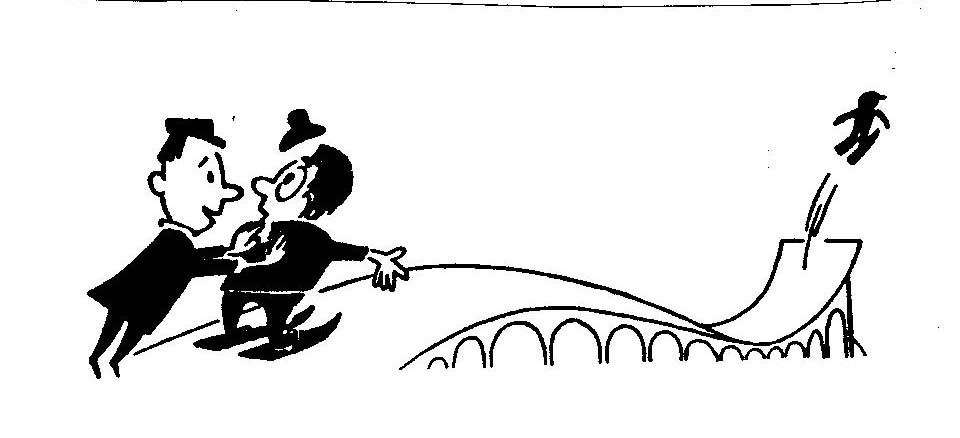
- •Предисловие
- •Множественное число имени существительного
- •Неопределённый артикль “a / an”
- •Определённый артикль “the”
- •Степени сравнения прилагательных и наречий
- •Some, any, no (и их производные), none, much, many, little, few, all, both, either, neither, each, every (и его производные), other, one
- •Объектная инфинитивная конструкция
- •Субъектная инфинитивная конструкция
- •Объектная конструкция с причастием 1
- •Субъектная конструкция с причастием 1
- •Самостоятельный причастный оборот
- •Предлоги места
- •Предлоги направления
- •Предлоги времени
- •Конверсия
- •Перенос ударения
- •Чередование звуков
- •Аффиксация
- •► 5. Приведите примеры существительных, обозначающих лицо и образованных с помощью суффиксов: - ist, - ian, - ant / ent, - er/ or, - ee, - ess, - ian, - ese.
- •Сокращение
- •Словосложение
- •Повествовательное предложение
- •Вопросительное предложение
- •Сложноподчиненное предложение Определительное придаточное предложение
Объектная инфинитивная конструкция
“ I
feel something touch my foot!”
I
feel something touch my foot!”
“Я чувствую, как что-то касается моей ноги!”
I You He, She, It We You They The manager My parents |
(don’t / doesn’t) see watch (es) watched watch didn’t watch notice feel hear |
somebody
me you him / her / it us you them
the kid the children
the boss the employees |
|
V dance. play the piano. act. tidy up. smile. tremble. sing. |
let make |
|
V have pocket money. go to bed early. |
||
(don’t / doesn’t) want would like expect wish |
to to to to |
V be supportive. be responsible. speak English fluently. |
► 8. Измените предложения, используя объектную инфинитивную конструкцию:
1) Nobody saw the cat as it stole a large piece of meat from the kitchen.
2) We heard the children as they were fighting in the room.
3) He must not drive my car.
4) Please, make some tea for us.
5) Every day at 8 'clock you can see him as he leaves his house and goes to the bus stop.
Субъектная инфинитивная конструкция
“You are said to be a good sportsman.” “Говорят, что ты – хороший спортсмен.”
|
||
Somebody |
is seen |
to V |
I You He, She, It We You They My neighbour The kids These poems The spectators This girl The students The news |
am (was) seen are (were) heard is (was) known are (were) believed are (were) understood are (were) expected is (was) supposed are (were) sure are (were) likely seem (don’t seem) seems (doesn’t seem) seemed (didn’t seem) appears (appeared) |
to come into the house. to sing. to be a good manager. to come at 5 p.m. to ring me up. to win. to be at home. to like these presents. to be a success. to be impressed. to know about our secret. to understand everything. to be intriguing. |
► 9. Используйте субъектную инфинитивную конструкцию в предложениях:
1) It seems that the dinner is ready.
2) It seemed that he had many friends among his colleagues.
3) It appears that the new plan is much better than the first one.
4) You will certainly be late if you don't hurry.
5) I suppose that the boss will agree to this decision.
ИНФИНИТИВНАЯ КОНСТРУКЦИЯ “FOR-TO-INFINITIVE”
“Here is a book for you to read.” “Вот тебе книжка для чтения.”
|
||
It is important It is good It is interesting It will be useful It was necessary |
for somebody |
to V |
for me for you for him for her for it for us for them for my friend for the students |
to come on time. to go to the seaside. to work with internet. to get higher education. to develop. |
|
The teacher speaks too fast This bag is too heavy Those exercises are too difficult These shoes are too expensive |
to understand. to carry. to do. to buy. |
|
► 10. Напишите, зачем Вы изучаете английский язык. Используйте инфинитивную конструкцию “For-to-Infinitive”.
ГЕРУНДИАЛЬНАЯ КОНСТРУКЦИЯ |
|||
“I am looking forward to Father returning home.” “Я с нетерпением жду, когда папа вернётся домой.”
|
|||
I You He, She, It We You They |
hear |
somebody(’s) |
V ing |
remember hear (heard) can’t bear miss don’t fancy suggest agree to see (saw) look forward to |
my your his, her, its our your their Tom / Tom’s
|
singing. working more. laughing. having a meeting at 2 p.m. not answering the phone. meeting on Friday. helping us. arriving so late. leaving soon. |
|
► 11. Завершите диалог, используя герундий и герундиальные конструкции:
A Flying Start
Gillian Forbes is only 17 and she has just got her pilot’s license. She is the country’s youngest pilot.
“How do you feel, Gillian?” I asked her after her test. “Wonderful!” Gillian cried. “I enjoy (fly) more than anything in the world. I can’t imagine (let) a week pass without spending some of my time in the air.” “What started (your / fly)?” I asked. “I just love (travel) in planes. I started (learn) to fly when I was very young.” “Would you consider (fly) as a career?” “I might, but I’ve got to pass my school exams now. There are some things you can’t avoid (do)!”
“Excuse (my / ask),” I said, “but does everyone in your family approve of (your / fly)?” “Of course not!” she said.
“What’s your greatest ambition now?” I asked her. “I want to learn to drive a car!” Gillian said with a big smile.
КОНСТРУКЦИИ С ПРИЧАСТИЕМ 1 |



